Lachlan Birnie
Source Localization by Multidimensional Steered Response Power Mapping with Sparse Bayesian Learning
May 20, 2024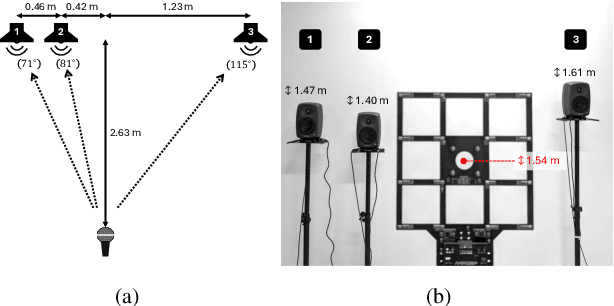
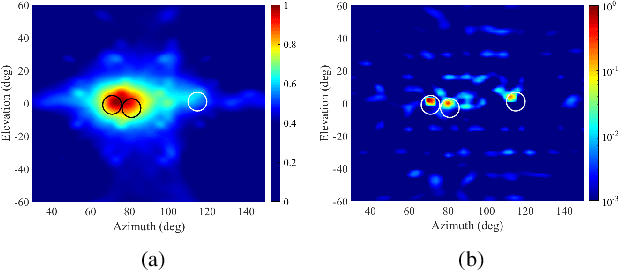
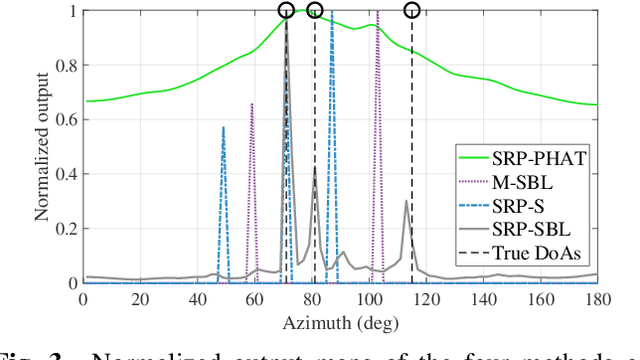
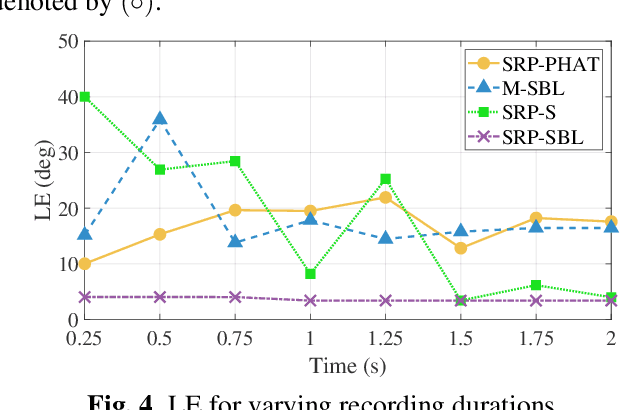
Abstract:We propose an advance Steered Response Power (SRP) method for localizing multiple sources. While conventional SRP performs well in adverse conditions, it remains to struggle in scenarios with closely neighboring sources, resulting in ambiguous SRP maps. We address this issue by applying sparsity optimization in SRP to obtain high-resolution maps. Our approach represents SRP maps as multidimensional matrices to preserve time-frequency information and further improve performance in unfavorable conditions. We use multi-dictionary Sparse Bayesian Learning to localize sources without needing prior knowledge of their quantity. We validate our method through practical experiments with a 16-channel planar microphone array and compare against three other SRP and sparsity-based methods. Our multidimensional SRP approach outperforms conventional SRP and the current state-of-the-art sparse SRP methods for localizing closely spaced sources in a reverberant room.
A Two-Step Approach for Narrowband Source Localization in Reverberant Rooms
Sep 25, 2023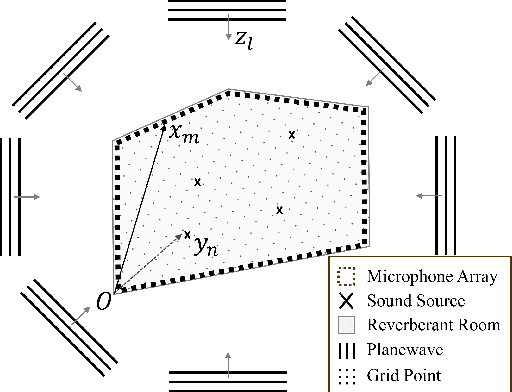
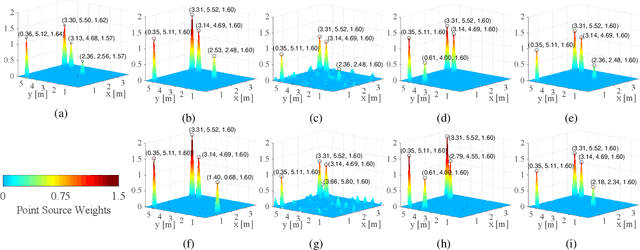
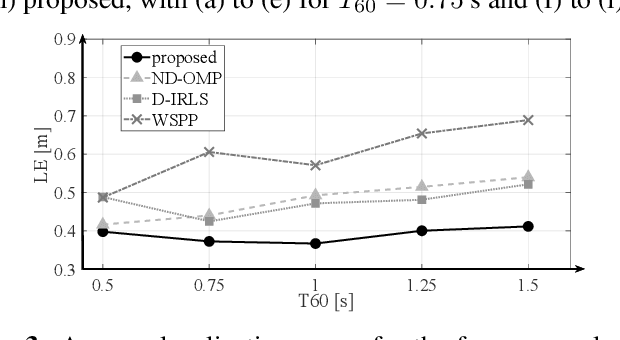
Abstract:This paper presents a two-step approach for narrowband source localization within reverberant rooms. The first step involves dereverberation by modeling the homogeneous component of the sound field by an equivalent decomposition of planewaves using Iteratively Reweighted Least Squares (IRLS), while the second step focuses on source localization by modeling the dereverberated component as a sparse representation of point-source distribution using Orthogonal Matching Pursuit (OMP). The proposed method enhances localization accuracy with fewer measurements, particularly in environments with strong reverberation. A numerical simulation in a conference room scenario, using a uniform microphone array affixed to the wall, demonstrates real-world feasibility. Notably, the proposed method and microphone placement effectively localize sound sources within the 2D-horizontal plane without requiring prior knowledge of boundary conditions and room geometry, making it versatile for application in different room types.
 Add to Chrome
Add to Chrome Add to Firefox
Add to Firefox Add to Edge
Add to Edge